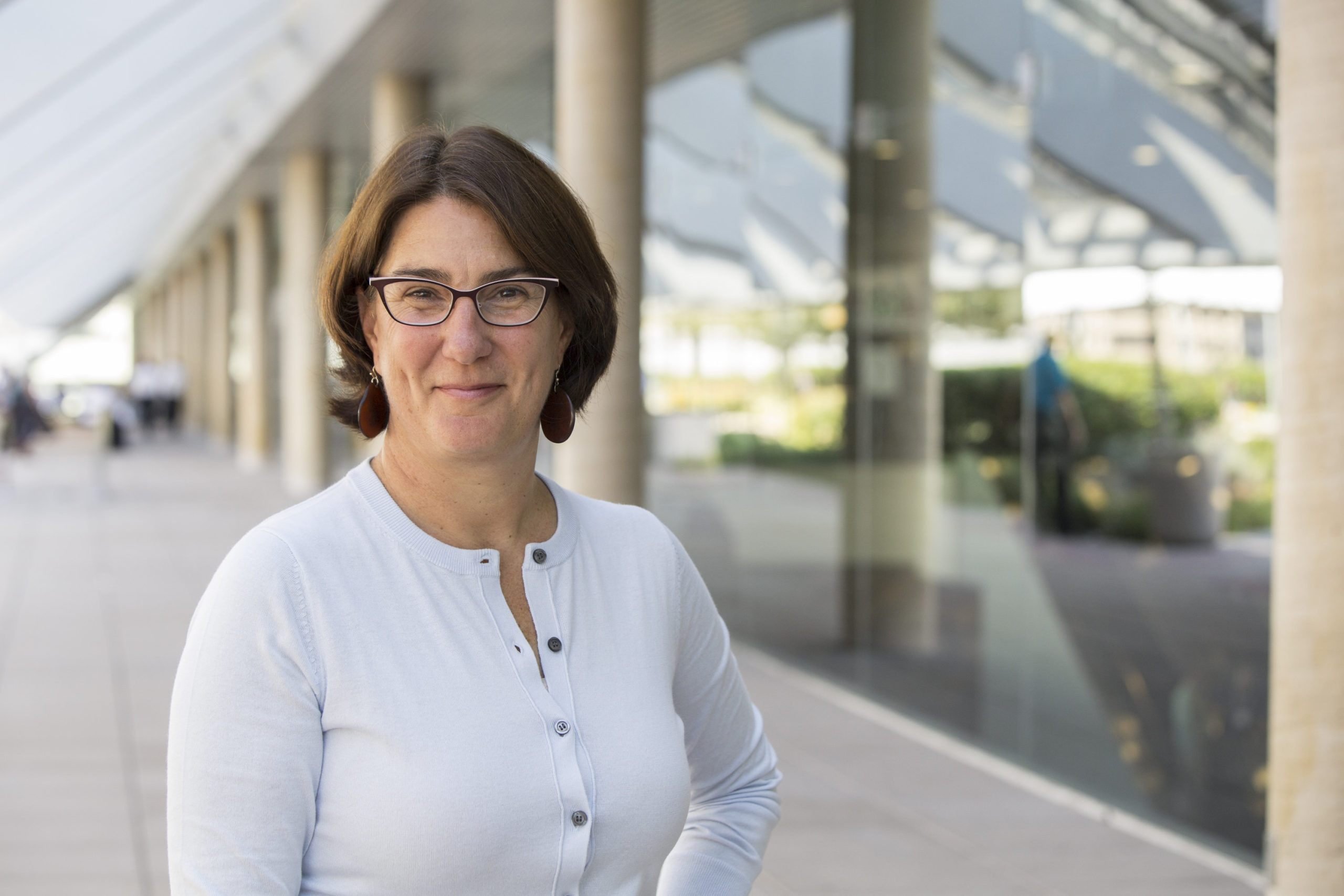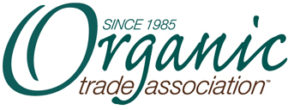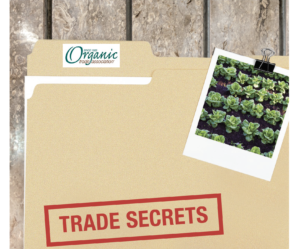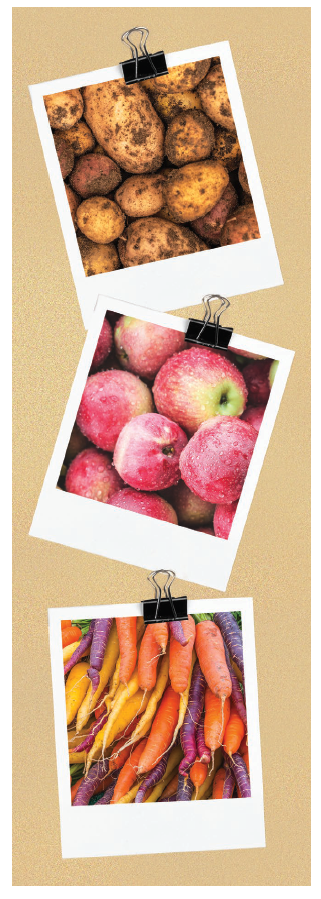
May 6, 2020
Trade Secrets: A Q&A with Organic Trade Association CEO Laura Batcha
The Organic Trade Association works for the whole organic sector, not just growers, so a few words with its leadership is a gateway to seeing the bigger picture.
Established in 1985, the Organic Trade Association’s mission is to “promote and protect organic with a unifying voice that serves and engages its diverse members from farm to marketplace.”
 Headquartered in Washington, D.C., the association has about 9,500 members in 50 states. Growers, shippers, processors, certifiers, farmers’ associations, distributors, importers, exporters, consultants, retailers and others make up the group’s membership.
Headquartered in Washington, D.C., the association has about 9,500 members in 50 states. Growers, shippers, processors, certifiers, farmers’ associations, distributors, importers, exporters, consultants, retailers and others make up the group’s membership.
Organic Grower recently conducted an email interview with CEO/Executive Director Laura Batcha, whose career has spanned many of these different types of businesses in the organic sector.
 Organic Grower: Can you tell me a little about your career and background? How does one train to lead a large trade group?
Organic Grower: Can you tell me a little about your career and background? How does one train to lead a large trade group?
Laura Batcha: I’ve done all things organic in my life – from raising organic crops, selling at farmers’ markets and through Community Supported Agriculture (CSA) programs, having my own small organic business, working for a multinational organization, and now leading the Organic Trade Association. And I’ve had a great time! I love it all: the good guys doing the good stuff.
I worked on a certified organic farm in Santa Cruz, California, right after college. It was one of the first organic farms in the area – about 20 acres of vegetables. I worked in the fields, and I managed field harvesting in the morning, field planting in the afternoon, and greenhouse planting. Every day I’d have lunch with the other dozen employees on the farm – young adults from all over the world – and we’d talk about the emerging organic movement. From that point on, I’ve worked in the organic industry in one way or another.
I eventually moved back to the East Coast where my family had roots, and I ran a small certified organic herb botanical farm, Green Mountain Herbs, in Vermont. I became an expert in medicinal herbal extracts and processed my products on the farm, thus obtaining both an organic producer certificate and an organic processor certificate.
My business grew from local markets to local stores. When I debuted my products on the national scene at Natural Products Expo East in Baltimore in the mid-1990s, it was a game-changer. My business exploded, and my company became one the largest certified organic producers of medicinal herbs and extracts on the East Coast.
I sold the company to Tom’s of Maine in 1999, and I worked at Tom’s for a decade in various positions in product and business development and strategic development. I still kept my toes in the dirt however, and during that time I transitioned my farm to organic vegetable production.
When I started out in organic, we had to figure out infrastructure, and how to ship organic products safely, how to manage the organic supply chain and maintain the integrity of organic. Organic was definitely growing in popularity, but the industry was still developing the federal regulations that now guide the sector. I joined the Organic Trade Association in 2008 as director of marketing and public relations, was named CEO and executive director of OTA in January 2014. This was my first foray into the organic policy side, but that being said, I lived through and experienced first-hand the maturing of the industry and development of many of today’s organic regulations and policies.
I’m proud to be leading this great group, and I’m glad that all my organic experience can translate now into my work with organic producers, companies of all sizes, and critical policy issues.
 OG: What I like about OTA is that the membership connects growers and retailers. Are there any misconceptions of retailers that you find the growers having, or vice versa?
OG: What I like about OTA is that the membership connects growers and retailers. Are there any misconceptions of retailers that you find the growers having, or vice versa?
LB: Misconceptions may arise about retail price versus real costs. Organic growers need a premium to cover their costs of the eco-friendly organic production methods they use, yet this must be balanced by retailers’ desire to make organic products accessible to as many shoppers as possible.
OG: I know you have a big lobbying event coming up this summer. What issues are you taking to the Capitol?
LB: Our annual flagship event, Organic Week, is scheduled for June 8-10. Of course as we move through this unprecedented period of the COVID-19 virus, we will adhere to safety and health guidelines that could cause any changes in our plans. But that said, our key issue on Capitol Hill is making sure that continuous improvement continues to be the bedrock of organic. We are working with a bipartisan group of Congress members to introduce legislation that will ensure continuous improvement and accountability in the organic standards.
The bill will advance organic standards by requiring USDA to consult with stakeholders and report to Congress on a clear pathway for moving forward on more than 20 recommendations made by the National Organic Standards Board (NOSB) that have been stalled since 2008. Also, the bill will require USDA to act more expeditiously on future consensus recommendations made by NOB by establishing a timeframe by which they must open up public comment and implement the recommendations.
OG: Some of the other organic associations have had to deal with controversy recently over hydroponics and the so-called “real organic” movement. Have you taken a stance?
LB: The Organic Trade Association’s long-standing position is to support the 2011 National Organic Standards Board recommendation that entirely water-based systems (hydroponics and aeroponics) should be prohibited in organic and robust standards for containerized production should be developed.
OG: Officials with the NOP have new funding and are looking for new ideas for enforcing organic standards. Have your people been in contact, and what changes in enforcement are you discussing?
LB: The Organic Trade Association is in constant contact with the NOP. The NOP will be publishing a proposed rule soon and taking public comment on “Strengthening Organic Enforcement.” This rule will define how NOP will implement provisions in the 2018 Farm Bill that we advocated for in order to increase oversight of the global organic supply chain and reduce fraud. We are discussing new rules to require electronic import certificates for all USDA organic products sold in the U.S., to increase qualifications and oversight of accredited certifiers, to improve compliance and supply chain traceability, and to require currently excluded handlers such as ports, brokers and importers to obtain organic certification.
OG: At meetings this winter I heard two kinds of people: those frustrated with the NOP as it is, and those frustrated with the other label programs that sidestep actual organic commitments. Is there a place for an add-on label of some kind with the Organic Seal?
LB: Certified organic – the Organic Seal – is the gold standard of excellence. The Organic Trade Association always welcomes efforts to improve agriculture through standards development, but these new labels must be built on the organic seal. Concerns that these new labels do not come at the expense of the farmers and handlers who choose USDA organic certification or inadvertently confuse consumers about organic standards and weaken the trust in the USDA Organic Seal need to be addressed.
Above, Laura Batcha. Photo: Erika Nizborski






